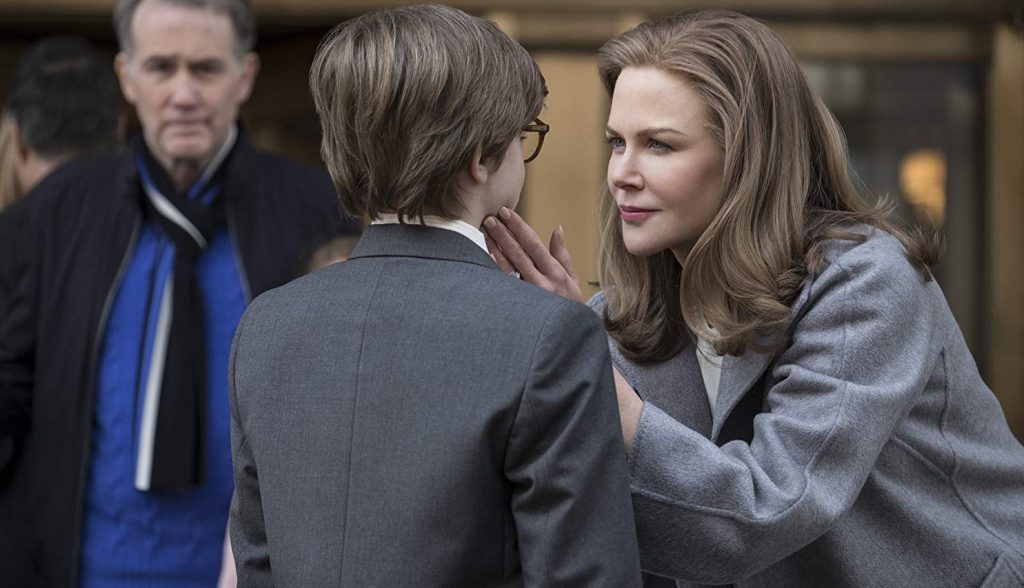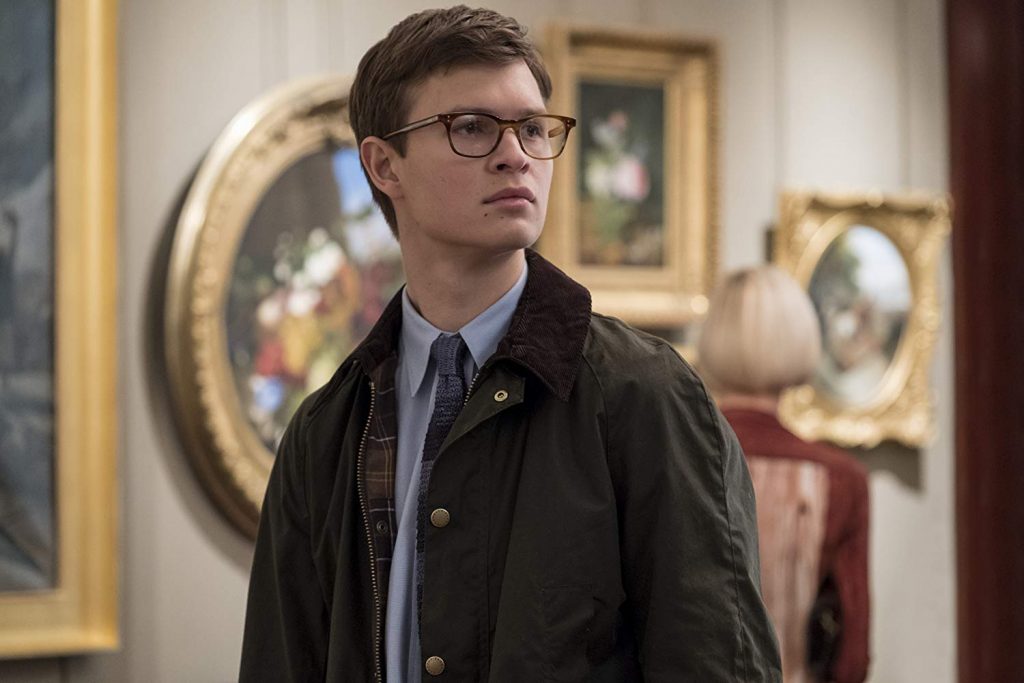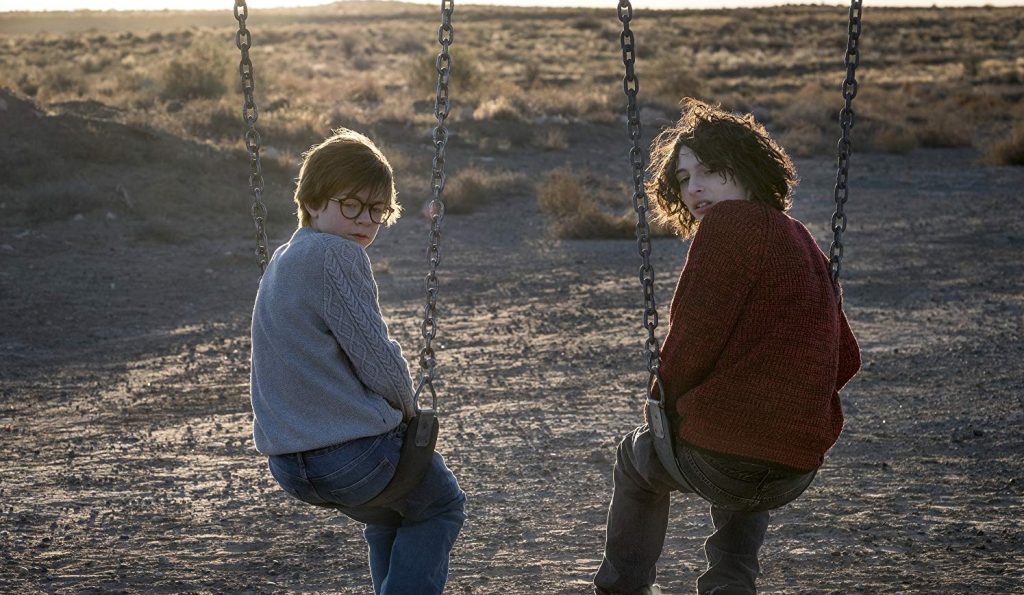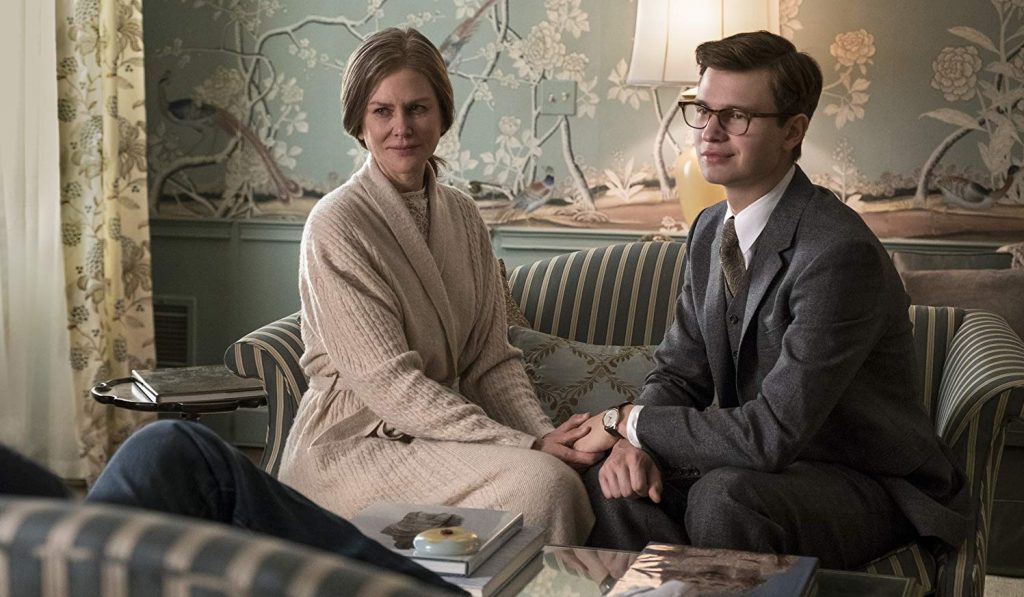
It must be especially daunting to try and adapt a Pulitzer Prize winning novel to the big screen. As a result, The Goldfinch already has the deck well stacked against it. The film is well shot and features a couple of good performances and a few interesting moments. Unfortunately, it is also a little bit stiff, awkwardly plotted and by the close doesn’t make the emotional impact it needs to really wow viewers.

The story follows Theodore (Oakes Fegley), a young boy visiting the Metropolitan Museum at the worst possible time. A bomb is detonated in the building, killing his mother and leaving him an orphan. He’s initially cared for by the family of a school chum and its matriarch Mrs. Barbour (Nicole Kidman), as well as Hobie (Jeffrey Wright), the business partner of a man killed in the explosion and a girl who happened to be standing nearby during the blast. Soon, the boy’s ne’er-do-well father (Luke Wilson), returns to collect Theo back for undetermined purposes. Theo’s rough childhood is intercut with an adult Theodore (Ansel Egort) a reserved and closed-off individual still affected by the tragic event and a specific work of art that was lost in the blast.

Frankly, the first half-hour is remarkably creaky, with the characters directed to behave in an extremely distant manner. It makes sense in some respects as the child is dealing with trauma and the upper-class family are somewhat severe, but these early sections come across as overly stiff (and no doubt will lose many viewers from the start). Things do improve as Hobie enters the picture, detailing his work in antiques and furniture, also giving some heartfelt talks about the longevity, importance and connectiveness of art. The movie also loosens up and feels more authentic when Theodore befriends a Ukrainian boy named Boris (Finn Wolfhard) who has personal issues of his own to contend with.

There are some intriguing bits as viewers slowly unravel Theodore’s obsession with a significant museum keepsake from the bombing, along with his continuing internal struggle to deal with the event itself. And again, a few sweet and effective interactions (particularly involving the younger version of the lead). Still, it only works part of the time. Just as many subplots feel forced, stagey and tonally amiss. The movie also struggles to maintain tension with its overly extended running time. And the score itself is overbaked during a couple of big dramatic beats, seeming especially grandiose given the generally low-key characters.

This review may come across as a bit harsh. While not everything here works, the movie is unique and unusual enough to keep one’s attention. It’s also a good-looking film with some eerie photography, particularly Theo’s walk through the ash and soot-covered museum immediately following the tragic event. Unfortunately, the film just doesn’t manage to create much of an emotional impact. One can feel it striving to stir viewers, but the revelations don’t have the desired gravitas. In fact, as the credits roll it can’t help but feel underwhelming.
Additionally, one can likely assume that given the acclaim for the source material, this adaptation isn’t in the same league as the book (which this reviewer has not had the opportunity to read). In the end, The Goldfinch is an adequately realized drama, but one that never really manages to find the right tone or truly sing.


